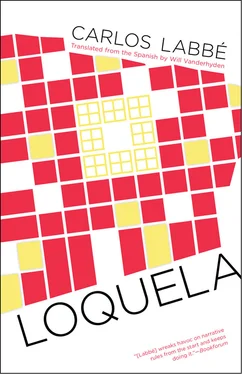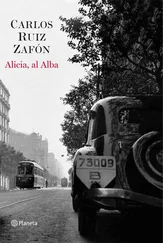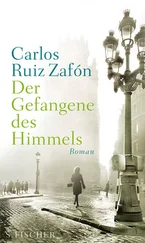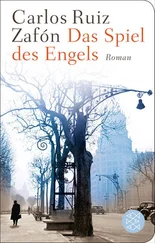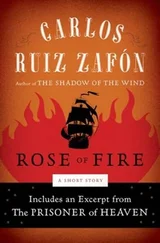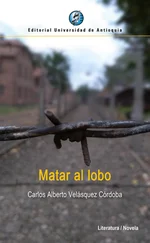I’m heading down Providencia chewing over the episode that I just finished reading in one of the notebooks, where, at a party, Violeta suffered her first delirium. I focus on the fact that the word “delirium” seems to be written by someone else, a different handwriting superimposed over the old title, which has been erased. I hope I get to talk to Alicia about these adulterations. “No one else has seen these pages,” she said when she gave them to me. Could it have been her? I need to wash my mind with soap. I see the eyes of the people walking at Providencia and Pedro de Valdivia, I focus on their faces. I head home on Once de Septiembre, I pretend to ask about some CDs in a store but the employee’s response annoys me: I’ve never seen the people of Santiago more absent than today. No one is talking, no one is watching where they’re going. A gringa sings Madonna at full volume while listening to her headphones. I’m surprised to hear an organic sound in the middle of the intersection of Holanda and Providencia. The gringa, spooked, shies away from the look I give her and quickens her pace, no doubt I’m a psychopath, a clown, or another gringo. I cut perpendicularly across the sidewalk to disrupt the flow of pedestrians: a man with a briefcase, an old lady with a shopping bag, two students smoking themselves to death, another executive with a ringing cell phone. Nobody runs into me, they avoid me with the skill of the occupied, I’m just another obstacle, another post en route to the office. My mediocre experiment fails. Disgusted, I get ready to throw up my arms and scream at full volume: doesn’t anybody have anything to scream in this city! But I don’t do it, I just keep walking, in silence, like always.

August 23 rd
Who shot Violeta Drago? I should write this question down, I should ask it every time I read one of her pages. The truth is that there’s no answer. That’s why I keep taking notes. This morning I wasn’t able to say anything to Alicia, now hidden away in the library, when we were talking about whatever insignificant thing (is it possible for a conversation to simply be banal or is it oblique, am I really short-sighted enough to believe that her comments are actually about the latest album by whomever, or about the Canadian film we saw on Friday?). When it comes to talking about reality, the subject has never been us, it’s always been the unwanted miscue that forces us to opt for impersonal dialogues. When I ask her about her weekend she invents some story so that I’ll leave her in peace: her friend found himself, in the middle of the dance floor, bored with the seventies disco music; he said he was going to the bathroom, but what he did was go get in his car and leave her stranded at the party. I don’t know how to react to this anecdote, I look at her and she looks me right in the eyes before she says okay, I’m going, and turns around and walks resignedly away. The moment for saying things is yet to come.
The important thing is that a few hours later, contemplating the rain (today it has rained magnificently), I randomly run into Alicia again. When she sees me, her expression is transparent. For an instant my face must be identical to hers. Of course, we conceal ourselves again, taking refuge in neutral terrain, a lame joke from me (and you, I thought you’d left), a sudden presence next to us. (The friends, the third parties, who appear out of focus in every movie, who in realist books are barely named, who in day-to-day life can become omnipresent and harsh in their judgments, like the comment L made today after Alicia left, that who would’ve imagined, back in our first year, that I’d be such good friends with the girl in the black dress and combat boots, irony or no. Maybe it’s me who has yet to understand egoism and who pays attention to irrelevant voices, voices that, for the sake of mental health, one should only listen to the way one listens to car horns when crossing the street.)
And I haven’t felt weak again.
Right now, in this moment, despondency pulls me to my feet. I know that today’s words are more repetitive than ever and my pen weighs a ton. I’ve read too much over the last few days, I transgressed on Friday when I asked Alicia if Violeta was mentally ill. With glassy eyes and an unanticipated seriousness in her voice she said: “Jackass. And I thought that you—” She went to the bathroom, and I acted like the guy who’s acting like nothing’s going on, but without a doubt I’d blunderingly ruined the morning. My comments (they lost any novelty a long time ago) weren’t going to get me anywhere, and wearing the same face as always wouldn’t either. The rest of the day was filled with evasive, failed attempts to bridge the gap with a phrase, and too much time, and a fucking silence that (I believe) festered in me alone.
That afternoon I read, mistrustfully, Violeta’s chaotic recollection of her father, of the moment when he brings her from Neutria to Santiago. The trip lasts an entire night and the girl calls on absurd resources to return to that cynical paradise that she baptized as Neutria. (On Saturday, at my grandmother’s house, I carefully scanned a political map: where Violeta would’ve located her city of origin, there’s nothing — miles of coastline, not even a fisherman’s cove. I mistrust geography, traced as abstractly as Violeta’s, yet imposed by years of pretense and a cadre of shysters who’ve agreed to turn the horizon into lines, dots, and limits.) I fantasize about an investigation, about a trip Alicia and I might take in the summer to search for Neutria. We’d use the albino girl’s diary as a kind of guide, along with a roadmap composed of all geographic versions of Chile — colonial cartography, military maps, trip plans sold in gas stations, international guidebooks for gringo backpackers. Then I get tired of speculation: Neutria might, or not, be a city with a semi-hidden physical existence, as Violeta claims. But is it possible in this day and age for a town to really be inaccessible? (Clueless. You trust information in such a visceral way. Something to do with your attachment to books, your disastrous habit of enjoying the TV newsman, your pathetic solidarity with the words people say.)
Enthused, I asked the professor a question and kept my eyes on C while listening to the answer. Sitting beside me, she returned my look and told me that this boring major wasn’t worth studying anymore. For some reason, her comment made all my enthusiasm vanish and the class itself turned gray, monothematic. In the middle of the classroom, surrounded by my classmates, the loneliness was palpable. As if it were a game, and I were the only one who wanted to play. As if I were somewhere else, far away, in a sunny city by the sea where the literature that’s taught isn’t a collection of themes, of structures, of forced characters, but is instead the part of us that we’re unable to see. I saw myself following Violeta to her city, sitting down in a classroom at the university she attended without permission to listen to how the professor and the students conducted their discussion — some of them standing, some bewildered by the succession of interpretations — between the outbursts of lachrymose laughter from one student who’d had the world that he’d read in some novel or other destroyed by the professor. A student was speaking with a hesitant voice but in the first person, quoting with precision and gesticulating, as if the coherence of his sentences might call into question the validity of his existence. When the professor looked directly at Violeta and said “don’t you think?” she could no longer stay silent, she got up from her seat and went out into the hallway.
I seemed to be there, and yet all the other seats were occupied by my actual classmates, dead-eyed, discussing whether to change the date of a quiz or the due date of an assignment. Apathetic, slumped in their chairs, seeming not to hear or see, but I applauded when Violeta left the classroom, and watched as the kid with the expressive hands went after her and — she described it this way herself — grabbed her arm, asking her name and what year she was. V didn’t pay him any mind, find out for yourself, she said, she came to these classes because she got a kick out of the ridiculous enthusiasm for literature; occasionally it was a good spectacle, when it wasn’t she’d go to the beach and take a nap. What I’m saying is that all of this came to an end when (my question in the middle of class) C confessed that she was sick of studying Literature at Universidad Católica. It’s sad.
Читать дальше
